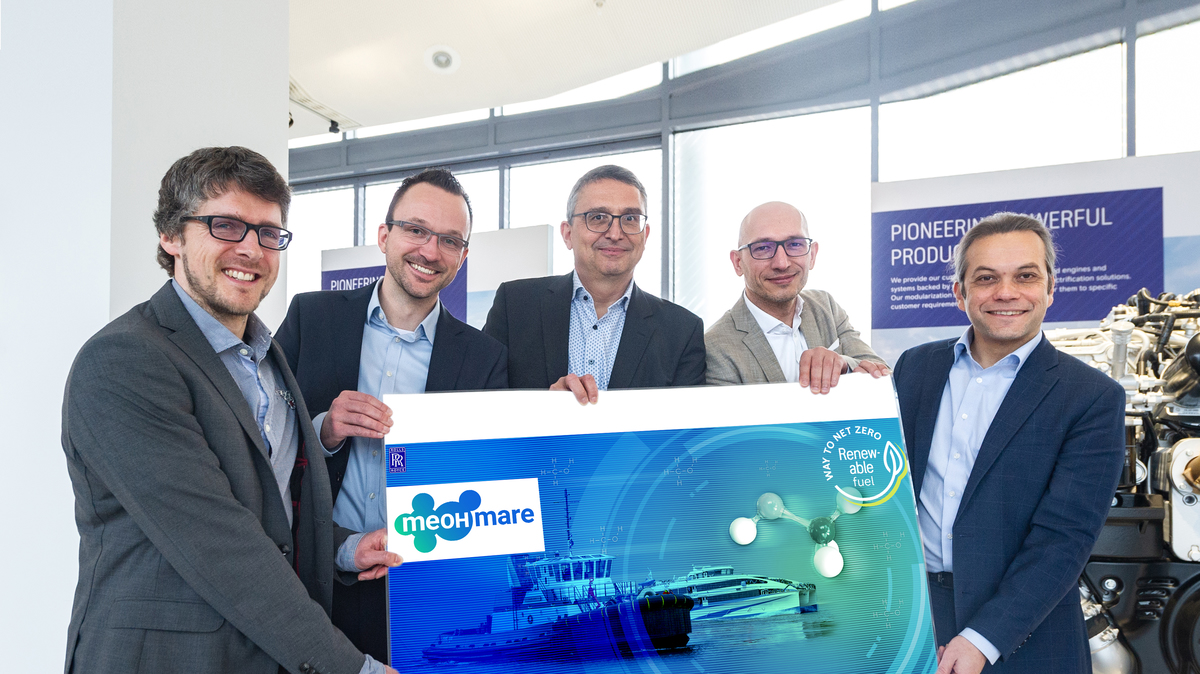Rolls-Royce teams up with a German duo to develop methanol-powered engine for ships
Rolls-Royce partnered with German engineering firm Woodward L'Orange and research company WTZ Roßlau (WTZ) to conceptualise a marine fuel engine powered by methanol.
 PHOTO: Representatives from Rolls-Royce, Woodward L’Orange and WTZ. Rolls-Royce Power Systems
PHOTO: Representatives from Rolls-Royce, Woodward L’Orange and WTZ. Rolls-Royce Power Systems
The internal combustion engine design is expected to be completed by the end of 2025.
Green e-methanol, or synthetic methanol, is produced from 100% biogenic carbon dioxide (CO2) that is typically captured through either bioenergy with carbon capture and storage (BECCS) or through direct air capture (DAC). This CO2 is then reacted with green hydrogen using a catalyst. E-methanol can help reduce a vessel's CO2 emissions by up to 95% compared to conventional marine fuels on a well-to-wake basis.
UK-based engine manufacturer Rolls-Royce is betting on methanol as the “future fuel for ships," says Daniel Chatterjee, who is the company's director of technology strategy and regulatory affairs.
German maritime coordinator Dieter Janecek has noted that shipping decarbonisation is a major concern, but that it also presents "great opportunities" to explore new marine propulsion technologies and cleaner marine fuels like methanol.
Re-working the engine mechanics
Methanol-powered engines require considerable modifications compared with existing diesel engines, since methanol's chemical properties differ from fossil fuels, according to Rolls-Royce.
“These [differences] range from specific energy content, density, evaporation properties and ignition energy to viscosity and lubrication behaviour,” it says.
Rolls-Royce Power Systems’ project manager Mathias Müller explained that the main focus of this project will be “redesigning the combustion process with fuel system, turbocharging and engine control as well as all fuel-interacting engine subsystems.”
Also, methanol has a relatively low cetane number, which makes it slower to ignite and burn than fossil fuels. This means that methanol-powered engines require separate pilot injectors, which supply a small amount of pilot fuel like diesel to ignite the methanol fuel.
Woodward L’Orange will develop a new injection system for the engine as “there are no production-ready injection systems for high-speed methanol marine engines,” the company's technology director Michael Willmann says.
This project, dubbed “MeOHmare”, has received a funding grant of €8 million ($8.73 million) from the German Federal Ministry of Economics and Climate Protection.
By Konica Bhatt
Please get in touch with comments or additional info to news@engine.online






